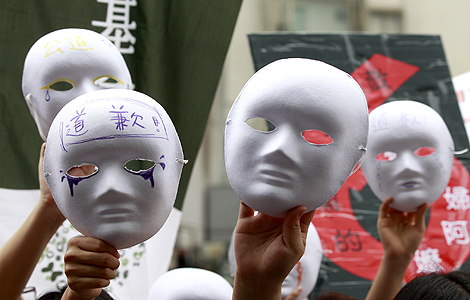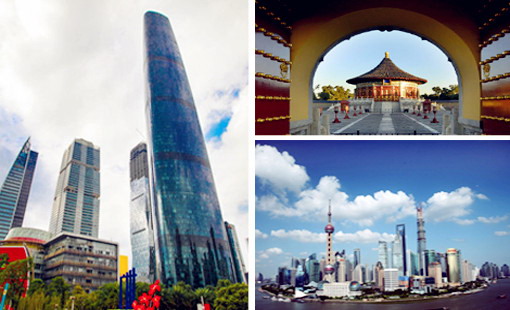Beijing-Tokyo dispute affects ASEAN
Updated: 2013-08-15 07:35
By Kavi Chongkittavorn (China Daily)
|
||||||||
ASEAN has a long history of dealing with major powers, especially with the United States and China during the Cold War. But in the case of China and Japan, ASEAN is facing a Catch-22 situation. Both countries have been wooing ASEAN vigorously and both are major trading partners of ASEAN and important players in nearly all ASEAN-led programs. So if they don't have cordial relations, several ASEAN+3 schemes could be jeopardized.
After being sworn in as Japanese prime minister for the second time, Shinzo Abe has tried to consolidate Japan-ASEAN relations, which will celebrate its 40th anniversary this year. Over the past four decades, Japan's pacifist policies have concentrated mainly on economic development and building relations with Southeast Asian countries. But unlike other Japanese leaders of the post-war era, Abe is eager to transform the mainly economic-oriented relations into multifaceted cooperation with security and strategic elements, especially maritime security cooperation, with ASEAN member states.
Different ASEAN member states have responded differently to Japan's move. Since Vietnam and the Philippines both have territorial disputes with China in the South China Sea they are more supportive of Japan's initiative to strengthen maritime security. The Philippines has been more enthusiastic, though. Other ASEAN member states have responded cautiously to Japan's overtures, avoiding taking sides.
For instance, Thailand has ignored Japan's initiative, fearing it would harm its relations with China, although Thailand and Japan first discussed this issue way back in 1988 and the plan was aborted because of lack of regional support. Japan's renewed interest in maritime security has put Thailand in an awkward position given the strengthening of Beijing-Bangkok friendship.
Chinese and Japanese leaders have visited key ASEAN cities three times in the past six months, which is unprecedented in regional shuttle diplomacy. Chinese Foreign Minister Wang Yi reiterated during his trips that ASEAN was and would remain a top priority in China's foreign policy. Given his experience in dealing with ASEAN since 2002, Wang managed to improve relations with ASEAN after the bumpy progress on drafting the Code on Conduct in the South China Sea.
Recently, the two sides agreed to proceed with the long-awaited process. And later this month, Beijing will host a special China-ASEAN ministerial meeting to commemorate their 10th anniversary as strategic partners, which could suggest the course of their future relations.
Gone are the days when ASEAN served as a fulcrum for major powers to converge on the region because they could not do it on their own. ASEAN's strength has always been its policy of "enemy to none but friend to all". Of late, the growing tension and polarization in East Asia has gradually narrowed the once impeccable niche diplomatic space of ASEAN. What ASEAN policymakers decide now will determine the grouping's future playing field vis--vis their powerful dialogue partners, that is, China and Japan.
The author is assistant group editor of The Nation in Thailand.

 Two killed in fiery crash of UPS cargo jet
Two killed in fiery crash of UPS cargo jet
 Special bus seat for breast-feeding mothers
Special bus seat for breast-feeding mothers
 Northern exposure
Northern exposure
 Re-enacting ancestors' journey to the west
Re-enacting ancestors' journey to the west
 Yao dreams of sports for fun with towering charity
Yao dreams of sports for fun with towering charity
 Protests arise in Taiwan over 'comfort women'
Protests arise in Taiwan over 'comfort women'
 Huawei unveil Ascend P6 smartphone in Vienna
Huawei unveil Ascend P6 smartphone in Vienna
 When small is beautiful in hotel industry
When small is beautiful in hotel industry
Most Viewed
Editor's Picks

|

|

|

|

|

|
Today's Top News
Abe rules out visit to Yasukuni shrine
Snowden case not to affect US-Russia talks
Over 200 dead after Egypt forces crush protesters
Manning 'sorry' for US secrets breach
China to probe foreign automakers
2 killed in crash of UPS cargo jet
Watchdog to protect rights of consumers
Sizzling summer tops the record list
US Weekly

|

|




